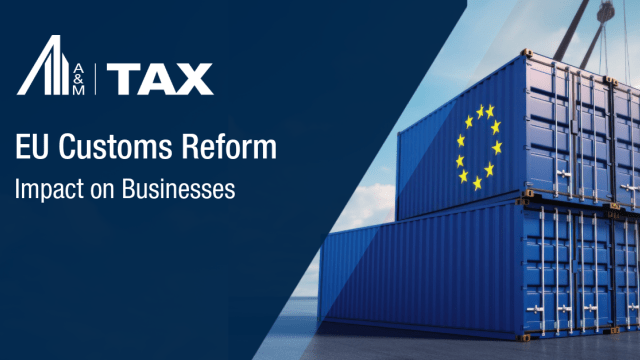The Thailand Board of Investment Rolls Out New Strategic Investment Package
On May 19, 2025, the Thailand Board of Investment (BOI) approved a comprehensive package of investment promotion measures aimed at enhancing the competitiveness of Thai businesses — particularly small and medium-sized enterprises (SMEs).[1]
Summary of the New Investment Promotion Measures
1. Updated Investment Promotion Measures for Data Centers, Data Hosting and Cloud Services
The Thailand Board of Investment has revised its investment promotion criteria for data centers, data hosting and cloud services to better align with modern business practices. Priority will be given to projects that employ advanced computing technologies and demonstrate efficient use of electricity and water.
Under the new guidelines, applicants must submit a plan for developing the Thai workforce. This may include initiatives such as collaborating with educational institutions on training programs, engaging in research and development (R&D), supporting the growth of Thai SMEs, or using domestically manufactured equipment. The proposed plan must be fully implemented before the Corporate Income Tax (CIT) exemption can be utilized. These updates are intended to ensure that investments in this sector contribute specifically to the advancement of Thailand’s digital talent.
2. Updated Investment Promotion Measures for Tourism Businesses in Second-Tier Provinces
In alignment with the government’s policy to upgrade tourism infrastructure and develop new attractions in second-tier provinces, the aim is to promote a more even distribution of tourism and create broader economic opportunities.
A new incentive package aims to promote tourism business in 55 designated second-tier provinces across the regions listed below.
Northern | Northeastern | Central, Eastern and Western | Southern |
|---|---|---|---|
| 1. Chiang Rai 2. Phitsanulok 3. Tak 4. Phetchabun 5. Nakhon Sawan 6. Sukhothai 7. Lamphun 8. Uttaradit 9. Lampang 10. Mae Hong Son 11. Phichit 12. Phrae 13. Nan 14. Kamphaeng Phet 15. Uthai Thani 16. Phayao | 1. Udon Thani 2. Ubon Ratchathani 3. Nong Khai 4. Loei 5. Mukdahan 6. Buri Ram 7. Chaiyaphum 8. Si Sa Ket 9. Surin 10. Sakon Nakhon 11. Nakhon Phanom 12. Roi Et 13. Maha Sarakham 14. Bueng Kan 15. Kalasin 16. Yasothon 17. Nong Bua Lam Phu 18. Amnat Charoen | 1. Lopburi 2. Suphan Buri 3. Nakhon Nayok 4. Sa Kaeo 5. Trat 6. Chanthaburi 7. Ratchaburi 8. Samut Songkhram 9. Prachin Buri 10. Chai Nat 11. Ang Thong 12. Sing Buri | 1. Nakhon Si Thammarat 2. Phatthalung 3. Trang 4. Satun 5. Chumphon 6. Ranong 7. Narathiwat 8. Yala 9. Pattani |
Eligible tourism-related activities include the development of large, high-quality attractions, theme parks, Thai cultural and arts centers, handicraft centers, museums, open zoos, international exhibition centers, large-scale convention halls, cruise terminals, yacht marinas, motor racing tracks, cable cars, and electric trams for tourism purposes. If these types of activities are established in any of the 55 designated second-tier provinces, the CIT exemption period will be extended from five years to eight years. For hotel businesses located in these provinces, the CIT exemption will be increased from three years to five years.
3. Measures to Enhance the Capabilities of Thai SMEs for the New Global Era Through Four Strategic Approaches
3.1 Promote efficiency improvements of Thai SMEs to strengthen their competitiveness
This measure is designed to enhance the capabilities and operational efficiency of Thai entrepreneurs, strengthen their competitiveness in the face of heightened global competition and trade tensions — particularly those stemming from U.S. trade policies — and provide support to businesses operating in the most vulnerable sectors.
To be eligible, Thai entrepreneurs must improve their competitiveness, for example by upgrading machinery, adopting automation and digital technologies, improving energy efficiency, or aligning with international sustainability standards. Eligible businesses will receive a CIT exemption for up to five years, capped at 100 percent of the investment in productivity enhancement — an enhancement over the previous incentive, which provided a three-year CIT exemption capped at 50 percent of the investment.
3.2 Suspend the promotion of certain types of business
The BOI will discontinue the promotion of activities that may lead to market “oversupply” or are considered “vulnerable” to trade measures imposed by the U.S. and other countries. These include the manufacturing of solar cells and panels, certain vehicle parts such as lead-acid batteries, nonessential accessories and decorative items that do not impact vehicle performance or safety, coil centers, long steel products, hot-rolled steel, and steel pipes.
3.3 Enhanced scrutiny of production processes in new project applications
A more rigorous assessment of “essential production processes” will be applied to certain sectors that are considered vulnerable to U.S. trade measures, including automotive parts, electrical appliances, electronics, metal products and light industries. Specific criteria will be enforced, requiring that core manufacturing activities occur within Thailand, with a meaningful transformation of primary raw materials into final products. For instance, there must be a change in the customs tariff code at a minimum 4-digit level. This measure aims to enhance the credibility of Thai export production in the global market and ensure it generates tangible benefits for the national economy. As previously reported in our article on stricter rules for issuance of non-preferential certificates of origin for Thai export,[2] it is clear that Thai authorities are now closely scrutinizing all aspects of export production to minimize circumvention risks, particularly in shipments to the U.S.
3.4 Balancing local and foreign workforce
The BOI has amended its conditions regarding the employment of foreign personnel in manufacturing businesses. For companies employing 100 or more foreign employees, at least 70 percent of the total workforce must be Thai nationals. In addition, the BOI will set minimum income requirements for foreign employees utilizing visa and work permit benefits. For instance, executive-level employees must earn at least 150,000 baht per month, while specialist-level personnel must earn at least 50,000 baht per month.
This approach aims to ensure a balanced domestic employment structure, prevent displacement of Thai employees, and encourage greater knowledge transfer to the local workforce. At the same time, the BOI would like to attract foreign experts who can contribute to value creation in the Thai economy.
Who Are Likely to Be Affected or Benefit From These Measures
Companies that are likely to be affected by or can benefit from the new BOI investment promotion measures include:
- Investors planning to establish data centers, data hosting or cloud service operations in Thailand
- Investors seeking to operate in hotel or tourism-related activities in Thailand
- Investors operating in sectors such as solar panels, long steel products and certain automotive components and
- Thai SMEs looking to strengthen their competitiveness through the adoption of modern technologies, productivity enhancements and alignment with international sustainability standards.
Companies should carefully assess their business operations and investment plans to determine whether they align with the BOI’s updated criteria or fall under activities that are no longer promoted. This assessment is essential to maximize the available benefits and avoid potential rejection of BOI promotion applications.
How Alvarez & Marsal Can Help
Alvarez & Marsal provides expert guidance to assist businesses assess and take full advantage of investment opportunities in Thailand. With a team of seasoned professionals, we provide comprehensive reviews of business and investment plans, conduct feasibility studies to assess eligibility of the promoted activities, and deliver practical insights to optimize the benefits of BOI incentives.
Our services include assisting with the preparation of investment promotion applications, compiling necessary supporting documentation, liaising with BOI officials, and monitoring the progress of applications to support a successful outcome. We can also assist in reviewing manufacturing processes to ensure compliance with the requirements for essential production processes, both under Thai regulations and those of export destination countries.
For more information, please contact us at Alvarez & Marsal Tax in Southeast Asia to help navigate your organization’s investment opportunities in Thailand.
[1]“Thailand BOI Approves Higher Tech, HRD Requirements for Data Center Investments, Promotion Measures for Local SMEs; Green-Lights USD 3 Billion Projects in Data Center, Wind Power,” The Board of Investment of Thailand, May 19, 2025, https://www.boi.go.th/index.php?page=press_releases_detail&topic_id=136939&_module=news&from_page=press_releases2&language=en
[2]James Badenach and Andy Winthrop, “Stricter Rules for Issuance of Non-Preferential Certificates of Origin for Thai Exports to the US,” Alvarez & Marsal, May 5, 2025, https://www.alvarezandmarsal.com/thought-leadership/stricter-rules-for-issuance-of-non-preferential-certificates-of-origin-for-thai-exports-to-the-us





